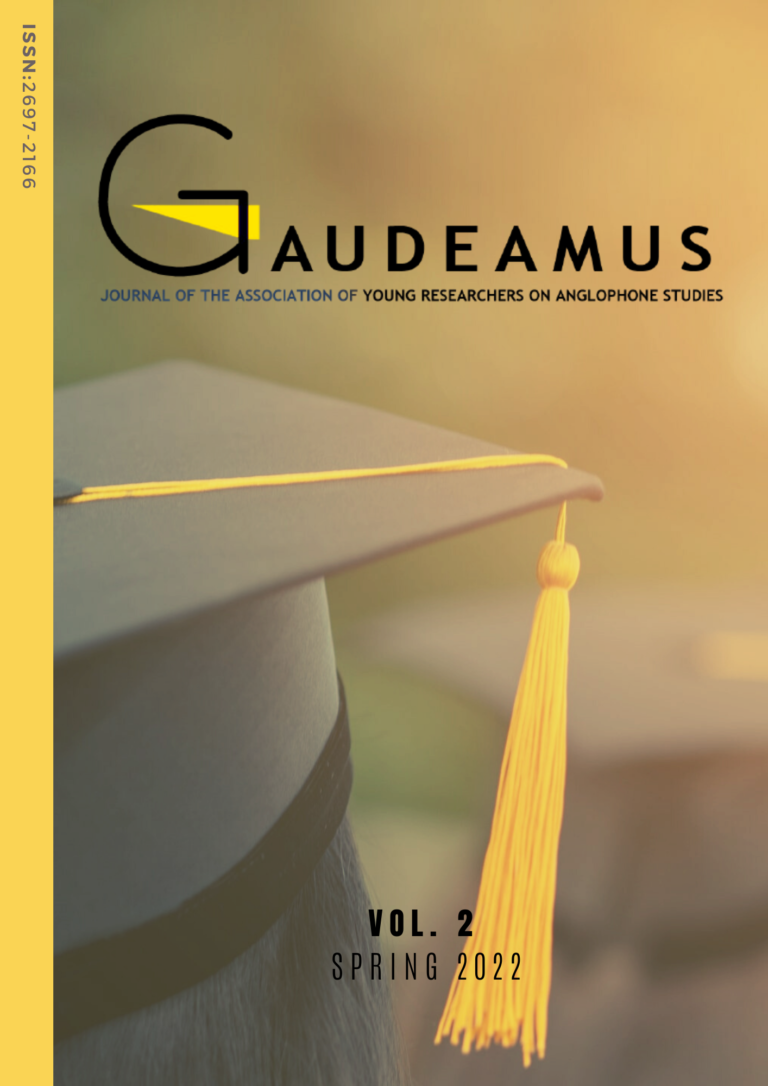Abstract
Ireland’s progressive liberation from the strict Catholic rule involved a considerable amount of social changes, which have affected gender roles, conventions on marriage, family and even the way that ‘love’ is approached nowadays (Fine-Davis 2015). In fact, this is what Sally Rooney has so far represented in her novels. As the reader navigates through her two first novels–Conversations with Friends (2017) and Normal People (2018)–, it becomes more obvious that one of Rooney’s main interests is to question much of the normative conducts of affectivity. Her novels present different relationships that struggle to fit in several conventions related to love and affection, starting from monogamy and continuing with social labels attempting to define relations, –such as ‘friends’, ‘lovers’, ‘married’, ‘single’, etc. –or what Rooney herself called as “prefabricated cultural dynamics” (2017, 306). As explained by her, “[w]e don’t have a way of speaking about these non-relationships, where someone is your friend but maybe you [sleep with them]. […] [W]e don’t have the vocabulary to describe [it]” (quoted in O’Regan 2017). In that context, this paper analyses these relationships from a philosophical point of view. Specifically, the society which is presented in both Rooney’s novels will be studied as having a structuralist organization, articulated by binary thinking. That is to say, any relation that does not conform to one of the labels previously mentioned is doomed to stay in the private and silent sphere due to the threat that these pose to conventions and normativity. Thereby, these ‘unlabelled’ relationships that Rooney presents in her novels will be compared to the ‘undecidable’, as a concept original from the Derridean philosophy, which is understood as an idea that “slip[s] across both sides of [a] [binary] opposition but [doesn’t] properly fit either. [It] [is] more than the opposition can allow. And because of that, [it] question[s] the very principle of ‘opposition’” (Collins and Mayblin 1993, 38). Following this, the main subject of study, then, will be the representation of such defiant – ‘undecidable’ – relations in a structuralist society that still intends to lead Western thinking to a binary and, on many occasions, discriminatory mind-set
References
Collins, Jeff and Bill Mayblin. 2012. Introducing Derrida: A Graphic Guide. Cambridge: Icon Books.
Deri, Jillian. 2015. Love’s Refraction. Jealousy and Compersion in Queer Polyamorous Relationships. Toronto: University of Toronto Press.
Derrida, Jacques. 1981. Positions. Trans. By Alan Bass. Chicago: University of Chicago Press.
—. 2002. Writing and Difference. Trans. By Alan Bass. London: Routledge.
Diduck, Alison and Felicity Kaganas. 2012. Family Law, Gender and the State: Text, Cases and Materials. Oxford: Hart Publishing.
Evans, Mary. 2003. Love: An Unromantic Discussion. Cambridge: Polity Press.
Fernández, José Francisco. 2019. “Conversations with Friends”. Estudios Irlandeses, 14: 271-273. Web. <https://www.estudiosirlandeses.org/wp-content/uploads/2019/03/DEF.Round-the-World.pdf> [Accessed on December 6, 2021]
Fine-Davis, Margret. 2015. Gender Roles in Ireland: Three Decades of Attitude Change. New York: Routledge.
Fineman, Martha Albertson. 2006. “The Meaning of Marriage.” In Marriage Proposals: Questioning a Legal Status. Eds. Anita Bernstein. New York and London: NYU Press: 29-69.
Fogarty, Sorcha. 2005. Binary Oppositions. Web. <https://www.litencyc.com/php/stopics.php?rec=true&UID=122> [Accessed December 6, 2021]
Grossi, Renata. 2014. “Love and Marriage.” Looking for Love in the Legal Discourse of Marriage. Canberra, Australia: ANU Press: 17–38.
Hennesy, Claire. 2020. The Irish Times: YA fiction: the best of 2020. Web. [Accessed April 25, 2021]
Howes, Lewis. “The Lies We Tell Ourselves About Monogamy and Relationships with Esther Perel and Lewis Howes.” YouTube video, 16:52, July 14, 2020. <https://www.youtube.com/watch?v=MoZPZlygxJI> [Accessed May 23, 2021]
Inglis, Tom. 2014. Meanings of Life in Contemporary Ireland. New York: Palgrave Macmillan.
Kaplan, Jeffrey. 2005. “Young Adult Literature in the 21st Century: Moving Beyond Traditional Constraints and Conventions”. The ALAN Review, 32.2: 11-18.
Klesse, Christian. 2018. “Theorizing Multi-Partner Relationships and Sexualities – Recent Work on Non-Monogamy and Polyamory”. Sexualities, 21.7: 1109–112
Kristeva, Julia. 1982. Powers of Horrors: An Essay on Abjection. Trans. By Leon S. Roudiez. New York: Columbia University Press.
London Review Bookshop. “Sally Rooney talks to Kishany Widyaratna about ‘Normal People.’” YouTube video, 01:16:16. May 8, 2019. <https://youtu.be/4jH_0rg46Es> [Accessed December 6, 2021].
Mansfield, Janet. 2005. “Difference, Deconstruction, Undecidability: A Derridian Interpretation”. ACCESS: Critical Perspectives on Communication, Cultural & Policy Studies, 24.1: 29 – 39.
O’Regan, Nadine. 2017. More Life & Arts: Sally Rooney Has Plenty to Talk About. Web. <https://www.businesspost.ie/more-life-arts/sally-rooney-has-plenty-to-talk-about-8e906466> [Accessed November 21, 2021].
Phillips, James. 2008. “Marriage in Jane Eyre: From Contract to Conversation”. Brontë Studies, 33.3: 203-217.
Rambukkana, Nathan. 2015. Fraught Intimacies. Non/Monogamy in the Public Sphere. Vancouver, Toronto: University of British Columbia Press.
Rooney, Sally. 2017. Conversations with Friends. London: Faber&Faber.
—. 2018. Normal People. London: Faber&Faber.

